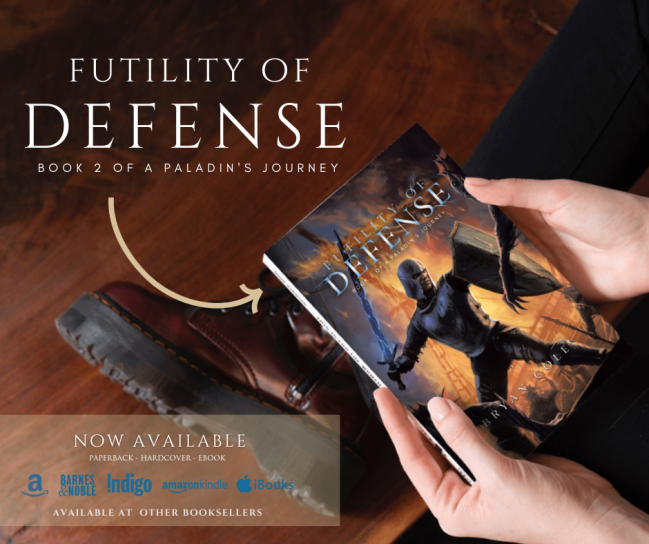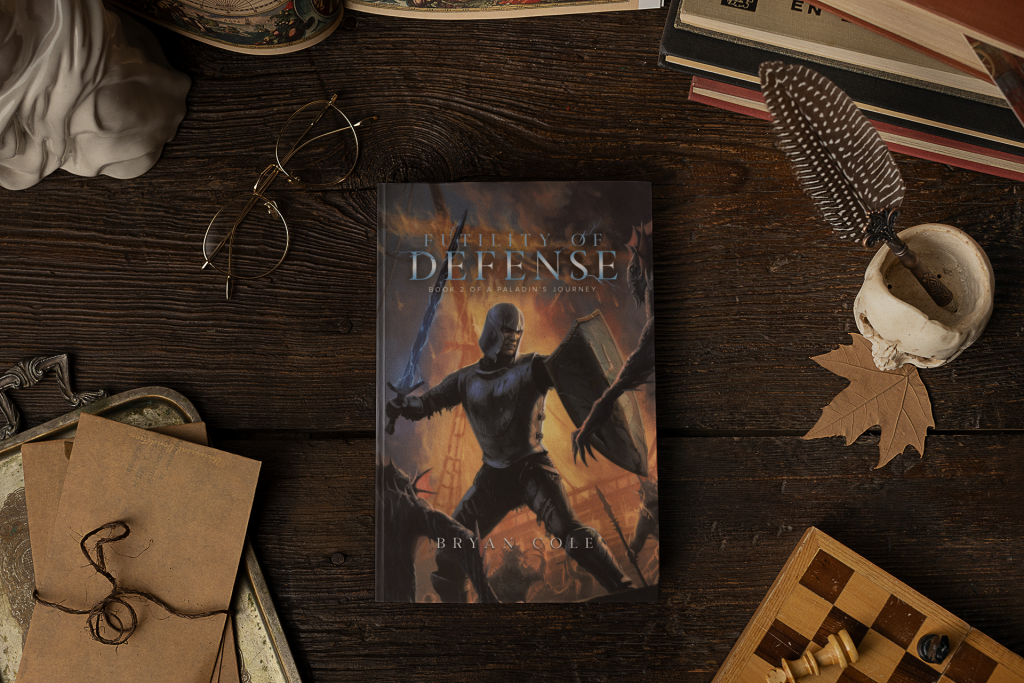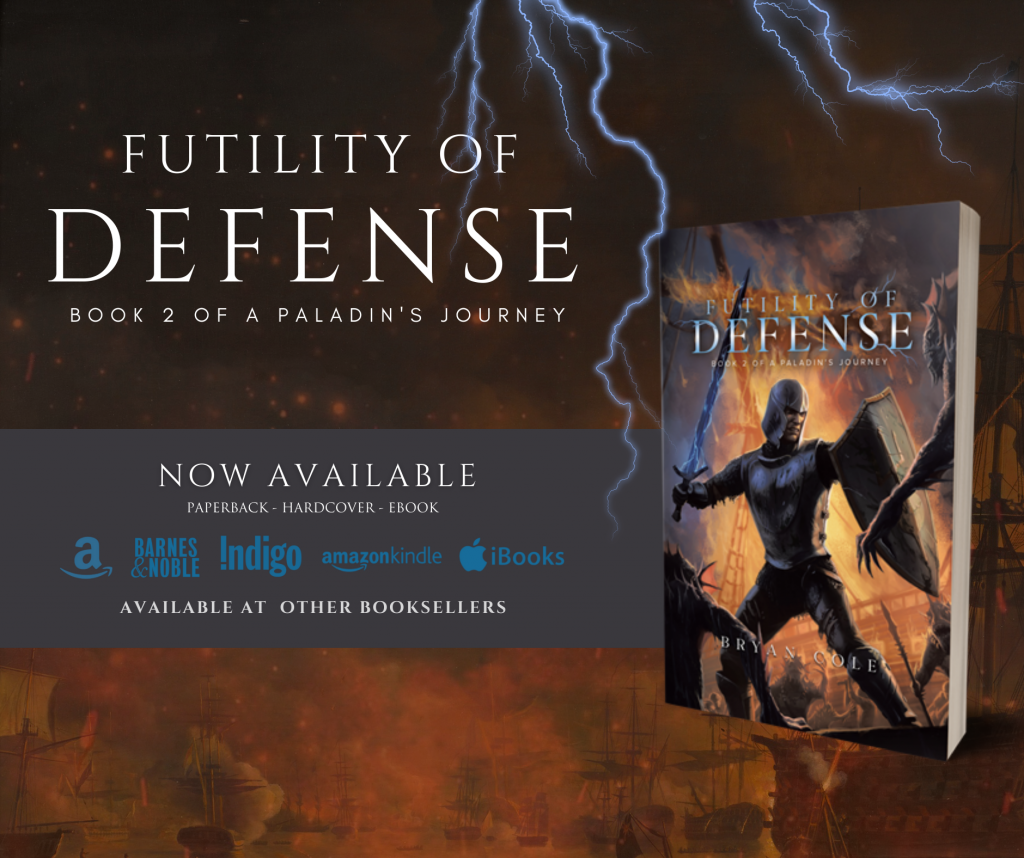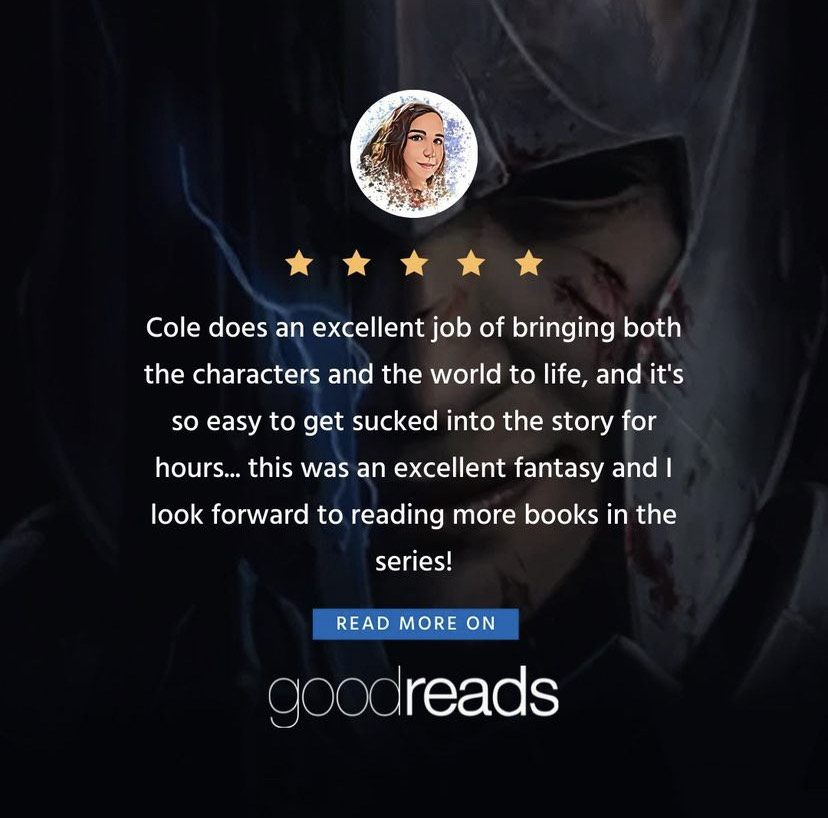Author Bryan Cole unveils the complex world of paladins in his fantasy novels ‘Beginning of Arrogance’ & ‘Futility of Defense’
Dive into an exciting interview to discuss the creative process for an epic fantasy series
Cole’s vivid depictions of combat are nothing short of mesmerizing. Imagine being entrenched in battle, surrounded by monsters, all the while strategizing to unveil the greater powers at play. Fans of the fantasy genre will find themselves entranced by the myriad magical and supernatural elements skillfully interwoven into the narrative. This book is a veritable treasure trove of fantastical wonders, from teleportation to gods, prophecies, and dragons.
★★★★ Literary Titan

In his compelling fantasy series, critically acclaimed author Bryan Cole delves into the intricate relationship between paladins and the societies they engage with. His book Beginning of Arrogance recently reached #2 on Amazon.com’s Military Fantasy chart and peaked at #20 in Epic Fantasy. His latest novel, Futility of Defense, explores the complexities of divine champions, blending heroism with the disruption of the balance of power. Inspired by a desire to create a world where paladins aren’t just token additions but significant forces with real-world consequences, Cole crafts a captivating narrative. Join us as we dive into the inspiration behind his characters, the challenges they face, and the intriguing blend of classic fantasy elements that shape his storytelling.
Q: In your book Beginning of Arrogance, you explore the idea of paladins as both heroes and disruptors of the balance of power. Can you share what inspired you to delve into this complex relationship between paladins and the societies they engage with?
A: Fantasy settings often have divine powers that give spellcasting and other benefits to their followers, clerics, priests, paladins, and oracles being common examples. However, in most of those worlds it feels like they’re a token addition to society, and they seem to ignore entirely the religious conflicts that saturate our own history here in the real world. My take on paladins in particular is that they are direct champions of their particular deity, which is a tremendous boon for any of the followers sworn to that god. To everyone else they’d represent a religious zealot gifted with powers designed to destroy them. So far in A Paladin’s Journey, almost the entire story has taken place in Watford, which is populated predominantly by followers of ReckNor. Once we start branching out to other parts of the world where the faith of ReckNor is not so prevalent, Krell will begin realizing just how good he had it in what amounts to a stronghold of his faith.
Q: Krell, the protagonist of your story, is an uneducated nobody with a stubborn streak. What drew you to create a character like Krell, and how does he navigate the challenges of being chosen by the capricious god ReckNor?
A: I hadn’t realized this when I wrote Krell, but in a lot of ways he’s an outlet for me. In my job in enterprise software, I’m constantly building consensus and working with others. Krell is not that person. He very much decides what he’s going to do, and will move around or through anyone in his path. He doesn’t build consensus or ask for opinions (though he’s learning and evolving). He does what ReckNor commands, and when he has no guidance from his god, he does whatever he wants. While he tries to be a good person, he’s also brash and reckless, leaping into situations without clearly thinking through what the consequences might mean. With experience, he will get better about this—the trick is living long enough to get it. Another aspect of Krell is an unfiltered honesty that makes some people uncomfortable. Finally, I made him somewhat unobservant of subtle events around him, but when it comes to understanding people, he cuts through the outer layers and sees them for who they are. When he applies this to himself, he’s quite honest about his relationship with ReckNor, and despite that loves him anyway.
Q: The world you’ve crafted in your book seems to be influenced by classic fantasy elements like noble warriors and capricious gods. What classic fantasy stories were your favourites growing up?
A: One of the most formative book series I read was the Dragonlance Chronicles. Looking back it was my first exposure, and it set a baseline for every other fantasy that I would read for many years. This led me to begin learning about mythology, finding elements of it within the stories I was devouring, which led me to a love of history. A Song of Ice and Fire is very clearly the War of the Roses, which made reading those books all the more enjoyable for me. But none of these loves compare to the impact that Star Wars had on a young Bryan. It remains the benchmark hero’s journey that I compare anything else against, and despite the missteps in the franchise remains the single most beloved property in my mind.
Q: Many authors face the challenge of maintaining a strong narrative pace while delivering intricate plots in competitive genres. What techniques or methods do you use to keep the story engaging without sacrificing depth?
A: The main strategy that I use for this are my character profiles. I’ve received a lot of positive feedback about my characters, how well developed and consistent they are. This is because I have pages and pages of notes on how they react and think about the world and different situations. All of this together lets me come up with the next challenge or plot beat of the book, and I can drop them in and see how they react to it. The depth of narrative comes from what amounts to authentic reactions from the characters based on the situation at hand. Maintaining pace is a harder element to think about. Here, I just rely on feel, and more importantly, on feedback from beta readers and editors.
Q: In your latest book, Futility of Defense, Krell defends a remote town against the sea devil menace, and the stakes grow increasingly dire. What challenges did you encounter in building and maintaining this sense of urgency throughout the narrative?
A: One of the aspects that ReckNor embodies is freedom of choice. This means that ReckNor is sparing of orders and guidance, leaving Krell free to make a lot of his own decisions. As the threat grows worse and worse, Krell is forced to decide how he is going to confront it without any input from on high. Numerous problems in the writing process came about because of this, notably that there were several rewrites due to the scenario being so dire that everyone died. Finding that balance of easing off just enough to maintain the tension, while also making it plausible that the characters could triumph if they are smart, clever, and brave, was perhaps the biggest challenge I found, but also tremendous fun to write!
Q: Do you have any advice for authors who hope to build a compelling series?
A: I have three big pieces of advice. First, your characters are the single most important aspect of the story, invest in them. Write down detailed descriptions of who they are, what they look like, and their reactions to various emotions like fear, anger, and happiness. This lets you write them much more consistently, which builds a believable narrative. Second, plot out the major story elements of the book and/or series. I had always intended to write a series (hence why Beginning of Arrogance is clearly labeled Book 1 of A Paladin’s Journey), and I knew before the first book was published how the series was going to end, the major plot elements, and the major story arcs for most of the characters. That isn’t to say that there isn’t room for unexpected changes in direction! The romantic complications Krell faces in Futility of Defense were never anything I had written down before the book began, but evolved as a part of building a real-feeling world populated by individuals who have their own wants and desires, and act to get them fulfilled. Third, the antagonists need to have a believable reason for doing what they’re doing that needs to make sense in-setting. This is directly related to the second point, and ties into the first point as well. The antagonists (who may or may not be villains) need to justify their actions to the reader to make themselves believable. I’m excited about Book 3 and the hints of the true end-plot that I’ve already started laying out (which means yes, everything up to this point is all symptoms, not causes, of the main plot arc). I’ve found keeping these three core concepts in mind have led to a lot of positive reviews, and a story I really enjoy reading!
For more information on Bryan Cole and his exciting Fantasy Series visit Amazon.com or his Author Website.








